Arts & Entertainment
Summer film and TV preview
The LGBTQ productions that will take you to the ‘Heights’
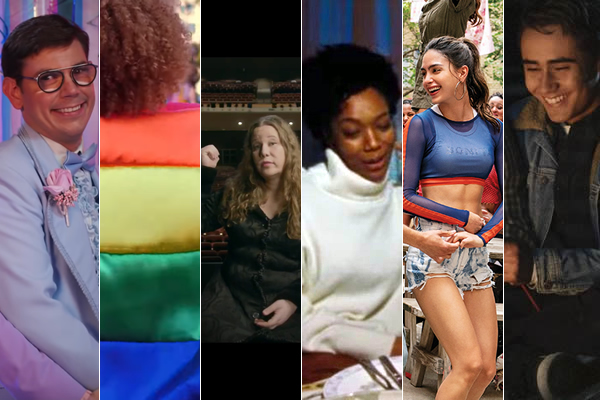
Summer is coming, once again, and this time it feels like a pretty big deal. For the first time in more than a year, we can look forward (fingers crossed) to a return to semi-normalcy, and it’s reasonable to make plans for enjoying at least some of our time outside the socially distanced safety of our living rooms.
That said, the waning of COVID also means that the television and film industry has an embarrassment of accumulated riches ready to offer us – and even if we have binge-watched our way through the past 14 months, we say, “Bring it on!”
There’s so much queer-flavored entertainment on deck in the coming few weeks that it can be a bewildering task to keep track of it all. Fortunately, the Blade is here to help, with our list of the movies and shows that seem likely to represent the cream of the crop.
First, the television:
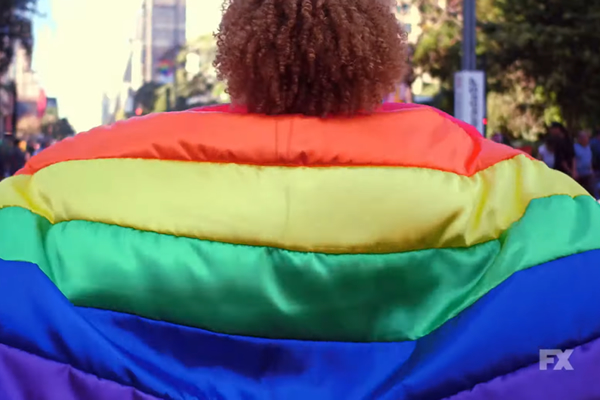
A scene from ‘PRIDE.’ (Screen capture via YouTube)
PRIDE (May 14, FX)
This six-part documentary series from VICE studios may have already started, but it’s a great kick off to Pride Season – and thanks to “FX on Hulu,” it’s easy to catch up at your leisure. Chronicling the struggle for LGBTQ+ civil rights in America from the 1950s through the 2000s, seven renowned LGBTQ+ directors explore stories of queer experience, from the FBI surveillance of homosexuals during the 1950s “Lavender Scare” to the “Culture Wars” of the 1990s and beyond, exploring the queer legacy of the Civil Rights movement and the battle over marriage equality. Offering profiles of familiar heroes like Bayard Rustin and Christine Jorgensen, as well as of lesser-known figures like Madeleine Tress and Nelson Sullivan, the show charts the evolution of LGBTQ+ rights and identities through interviews and archival footage to provide a valuable perspective on queer history, just in time for Pride month.
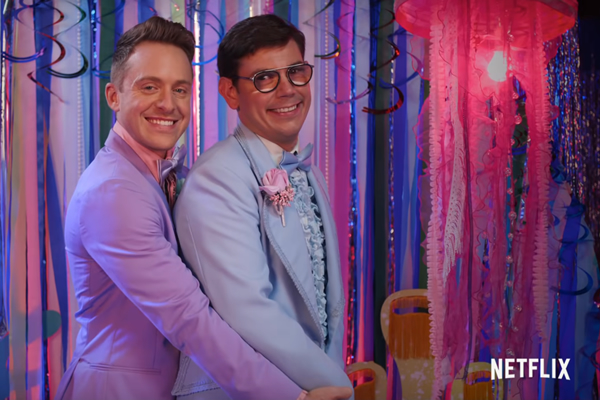
Max Jenkins and Ryan O’Connell in ‘Special.’ (Photo courtesy Netflix)
SPECIAL (May 20, Netflix)
Freshly dropped is the second and final season of this surprise hit series from Ryan O’Connell, a semi-autobiographical comedy about a writer with cerebral palsy (played by O’Connell himself) trying to navigate life in the Los Angeles “scene” as a gay man with a disability. The abbreviated (only four episodes) final arc follows Ryan as he tries to “get his shit together” after the disastrous events of season one – including a fight with his mother Karen (Jessica Hecht) that has left them estranged ever since – that have left him with a nasty case of writer’s block. New relationships are also on the horizon for both Ryan and BFF Kim (Punam Patel), and the journey toward self-discovery and self-actualization takes center stage as this disarmingly charming and refreshingly unsentimental comedy – currently the only show on television to feature a disabled LGBTQ person as its main character – comes to a close. Max Jenkins, Charlie Barnett, Ana Ortiz, Utkarsh Ambudkar, Lauren Weedman, and Leslie Jordan are among those joining the show for season two, alongside returning cast members Marla Mindelle, Gina Hughes, and Patrick Fabian.
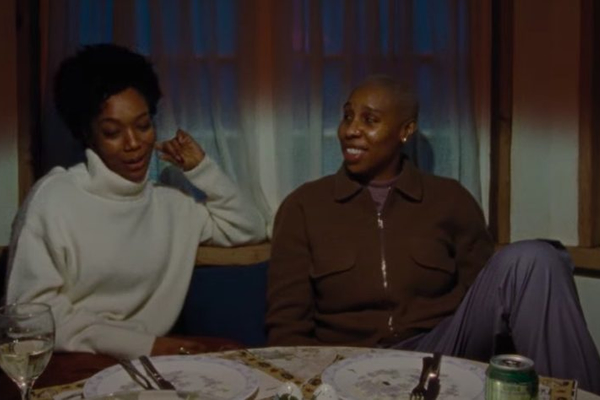
Naomi Ackie and Lena Waithe in ‘Master of None.’ (Photo courtesy Netflix)
MASTER OF NONE (May 23, Netflix)
Returning for a much-anticipated season 3 is this acclaimed series, co-created by Aziz Ansari and Emmy-winner Alan Yang. Always strongly “queer-adjacent” thanks largely to the involvement of Lena Waithe, who played the lesbian character of Denise throughout the first two seasons and became the first Black woman to win a writing Emmy for the episode “Thanksgiving,” based partly on her own experience coming out to her mother. In its third installment, the show takes a radical departure from following Ansari’s lead character (struggling actor Dev Shah) and instead focuses all of its five-episode run on the relationship between Denise and partner Alicia (played by BAFTA-winner Naomi Ackie).
Directed by Ansari, who also co-wrote with Waithe, this new season touts itself as “a modern love story that intimately illustrates the ups and downs of marriage, struggles with fertility, and personal growth both together and apart.” Judging from its past excellence, this new installment is likely to be one of the summer’s best bets.
BALLERINA BOYS (June 4, PBS)
“American Masters” presents a portrait of Les Ballets Trockadero de Monte Carlo (“The Trocks”), an all-male ballet company that has captivated audiences for over 45 years with their signature style – classical ballet en pointe and in drag, delivered with a blend of rigorous technique and satire that challenges the rigid gender norms of the art form – while also delivering a message of equality, inclusion and social justice. This profile from director Chana Gazit follows the legendary troupe as they tour the Carolinas, and culminates with their 2019 performance at the Stonewall 50th anniversary concert in NYC. The hour-long doc broadcasts on June 4 (check your local listings), but it will also be available via the PBS video app in honor of Pride Month.
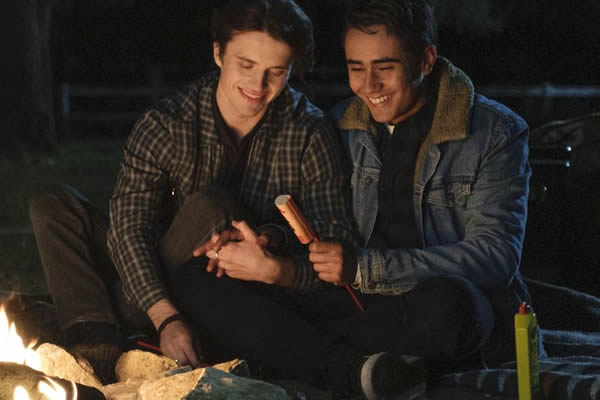
George Sear and Michael Cimino in ‘Love, Victor.’ (Photo courtesy of Hulu)
LOVE, VICTOR (June 11, Hulu)
The popular teen dramedy, inspired by the hit LGBTQ teen romance “Love, Simon,” returns for season two as the newly out Victor (Michael Cimino) enters his junior year at Creekwood High. As his story continues, Victor faces challenges such as a family struggling with his revelation, his heartbroken ex-girlfriend Mia (Rachel Hilson), and the difficulties of being an openly gay star athlete – all while navigating the excitement of his relationship with new boyfriend Benji (George Sear). Odds are good that this continuation will deliver more of the same blend of heart, humor, and diversity that helped the first season become one of last summer’s must-see highlights. Anthony Turpel, Bebe Wood, Mason Gooding, Isabella Ferreira, Mateo Fernandez, James Martinez, and Ana Ortiz also star.
REUNION ROAD TRIP: QUEER EYE FOR THE STRAIGHT GUY (June 17, E! Entertainment)
As part of the network’s special event series, “Reunion Road Trip,” the original “Fab Five” – Thom Filicia, Ted Allen, Kyan Douglas, Carson Kressley and Jai Rodriguez – reassemble in Los Angeles to do a makeover for Jai on his 40th birthday. As the group works their magic, they think back to their most heartfelt, meaningful makeovers and the impact on the LGBTQ community then and now, delivering a satisfying (and long overdue) trip down memory lane for fans of one of the most important and influential queer shows in television history. Airs at 9pm PT/ET.
Now for the movies:
PINK – ALL I KNOW SO FAR (May 21, Amazon Prime)
Amazon Studios launches its summer with this intimate documentary about award-winning performer and musician Pink as she embarks on her record-breaking 2019 “Beautiful Trauma” world tour and welcomes audiences to join her chosen family while trying to balance being a mom, a wife, a boss, and a performer. Directed by Michael Gracey (“The Greatest Showman”), this look into the private and public sides of a trailblazing artist – who is also a fierce and vocal advocate for the LGBTQ community, where she has long been a fan favorite – mixes footage from the road with behind-the-scenes interviews and personal material, giving audiences a glimpse behind the curtain of “the circus that she calls life.”
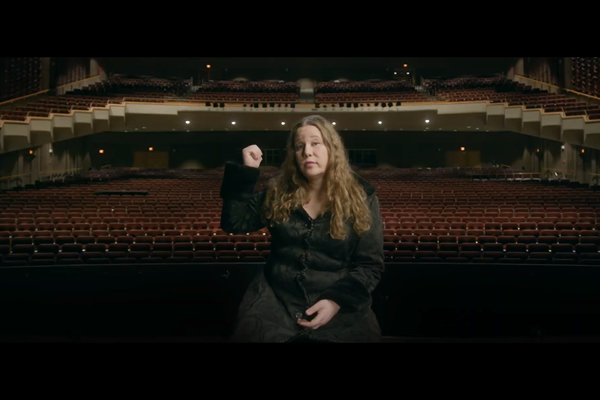
Lucia Lucas in ‘The Sound of Identity.’ (Screen capture via YouTube)
THE SOUND OF IDENTITY (June 1, VOD)
This award-winning documentary from director James Kicklighter profiles international opera star Lucia Lucas as she becomes the first known transgender woman in opera history to perform a principal role. Capturing Lucas on the cusp of international stardom as she prepares for her historic performance at the Tulsa Opera, it showcases the collaborative process between Lucas and her mentor (renowned composer Tobias Picker), as they bring Mozart’s “Don Giovanni” to life – with Lucas, a world-renowned baritone, taking the spotlight and all the pressures that come with it. Along the way, Lucas provides fresh insights into her transition, the professional risk she is taking, and what it means for those who follow. A must-see exploration of the role played by identity in our personal and professional lives, as well as a portrait of an artist at the height of her career.
JULIA SCOTTI: FUNNY THAT WAY (June 1, VOD)
Another documentary profile of a pioneering trans artist, this Susan Sandler-directed film takes audiences on an entertaining but emotional roller coaster as it follows the comeback of Julia Scotti – formerly Rick Scotti, who appeared on bills with Jerry Seinfeld and Chris Rock – after her transition during “a time when the words gender dysphoria and gender reassignment surgery were rarely heard.” Shot over a period of five years, this inspirational doc tracks Julia’s triumphant comeback, the rough life on the road, and the complex process of reuniting with her children, as her comedy becomes a shared language of identity, healing, and joy.

John Benjamin Hickey in ‘Sublet.’ (Screen capture via YouTube)
SUBLET (June 11, VOD)
Fans of steamy international LGBTQ cinema can look forward to this film from Israeli director Eytan Fox, whose haunting gay military romance “Yossi & Jagger” broke ground in expanding support for LGBTQ movies in Israel when it was released in 2002. In his latest offering, 50-something American writer Michael (John Benjamin Hickey) travels to Tel Aviv on assignment, where he sublets an apartment from local student – and sexual free spirit – Tomer (Niv Nissim). The young man quickly becomes his tour guide, and as the two spend time together, they soon find themselves exploring more than just the city – despite the clash of generational attitudes between them. Slated to debut at the cancelled-due-to-COVID 2020 Tribeca Film Festival, it’s getting the release it deserves, as a reminder that Pride stretches across all borders.
RITA MORENO: JUST A GIRL WHO DECIDED TO GO FOR IT (June 18, in Theaters)
Directed by Mariem Pérez Riera, this documentary profiles its EGOT-winning subject with a look at her 70+ year career, following the beloved performer from her poverty-stricken youth in Puerto Rico, through her time as an all-purpose “ethnic stock player” in Hollywood (even after the triumph of becoming the first Latina actress to win an Oscar for her role in “West Side Story”), and her eventual rise to the iconic status she enjoys today. It also chronicles not only Hollywood’s not-so-hidden history of racism, sexism, and abuse, but Moreno’s personal struggles – including a toxic relationship with Marlon Brando and her own bout with serious depression – before her talent and resilience allowed her to triumph over adversity, break barriers, and forge a path for new generations of artists to come. The film features extensive interviews with Moreno, as well as George Chakiris, Héctor Elizondo, Gloria Estefan, Tom Fontana, Morgan Freeman, Mitzi Gaynor, Whoopi Goldberg, Norman Lear, Eva Longoria, Justina Machado, Terrence McNally, Lin-Manuel Miranda and Karen Olivo.
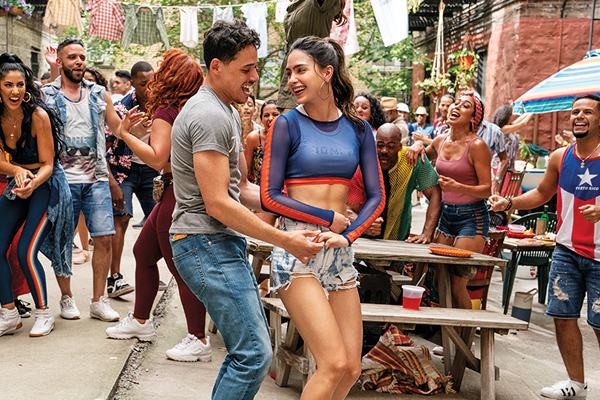
Anthony Ramos and Melissa Barrera in ‘In the Heights.’ (Photo courtesy Warner Brothers Pictures)
IN THE HEIGHTS (June 18, HBO Max and in Theaters)
Make no mistake, the long-awaited film adaptation of the 2005 Broadway musical by Lin-Manuel “Hamilton” Miranda and Quiara Alegria Hughes is sure to be the big-ticket movie of the summer. With charismatic bodega-owner Usnavi (Anthony Ramos) at its center, this sweeping musical portrait of Manhattan’s Washington Heights – a neighborhood mostly populated by immigrant people of color and their families – showcases a remarkable and diverse cast that also includes Corey Hawkins, Leslie Grace, Melissa Barrera, Daphne Rubin-Vega, Stephanie Beatriz, Gregory Diaz IV, Dascha Polanco, Jimmy Smits, Marc Anthony, and Olga Merediz reprising her Broadway role.
The show was a Tony-winning smash onstage for its infectious celebration of community, as well as its uplifting message of following your dreams in the face of adversity. On film, as helmed by “Crazy Rich Asians” director Jon M. Chu, it’s a return to triumphant form for the Hollywood musical, executed with breathtaking cinematic vision and a healthy dose of “magical realism” that does nothing to undercut its streetwise swagger – and it’s probably something you should plan to see on the big screen.
After so many months of isolation, you deserve a special treat.
Arts & Entertainment
2026 Most Eligible LGBTQ Singles nominations
We are looking for the most eligible LGBTQ singles in the Washington, D.C. region.

Are you or a friend looking to find a little love in 2026? We are looking for the most eligible LGBTQ singles in the Washington, D.C. region. Nominate you or your friends until January 23rd using the form below or by clicking HERE.
Our most eligible singles will be announced online in February. View our 2025 singles HERE.

The Freddie’s Follies drag show was held at Freddie’s Beach Bar in Arlington, Va. on Saturday, Jan. 3. Performers included Monet Dupree, Michelle Livigne, Shirley Naytch, Gigi Paris Couture and Shenandoah.
(Washington Blade photos by Michael Key)

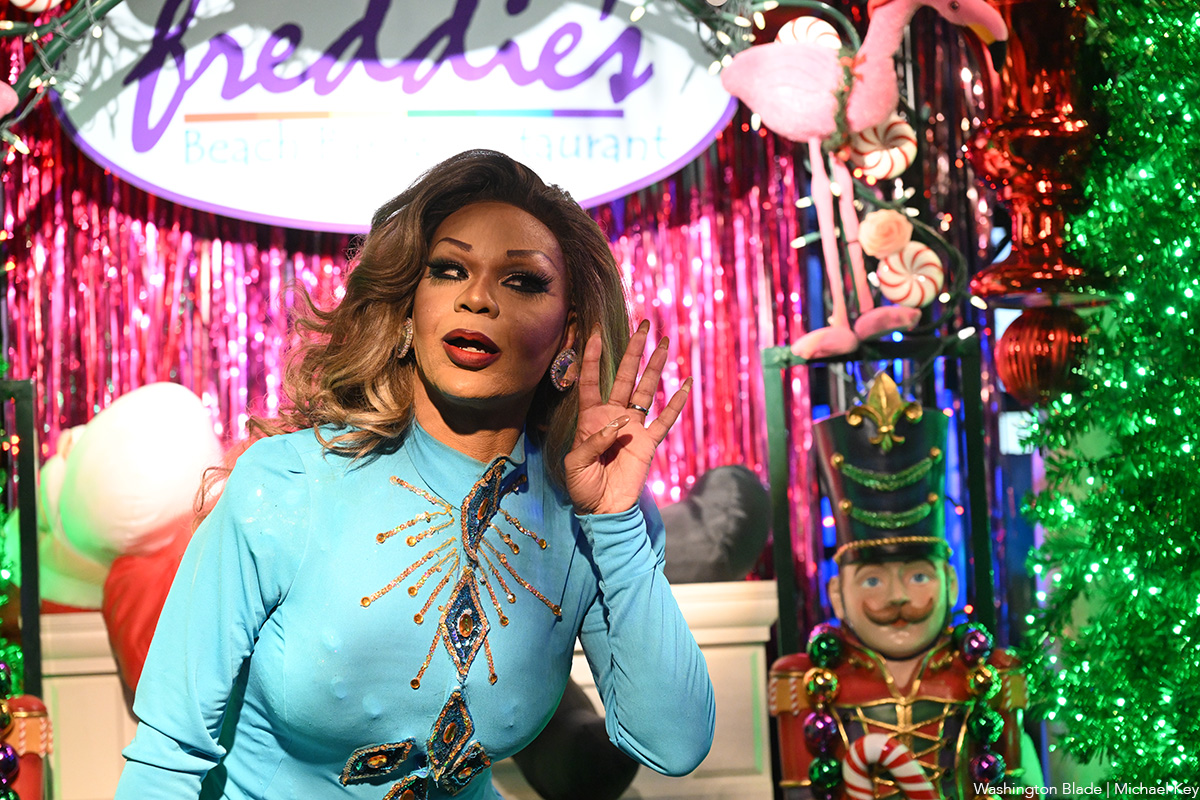







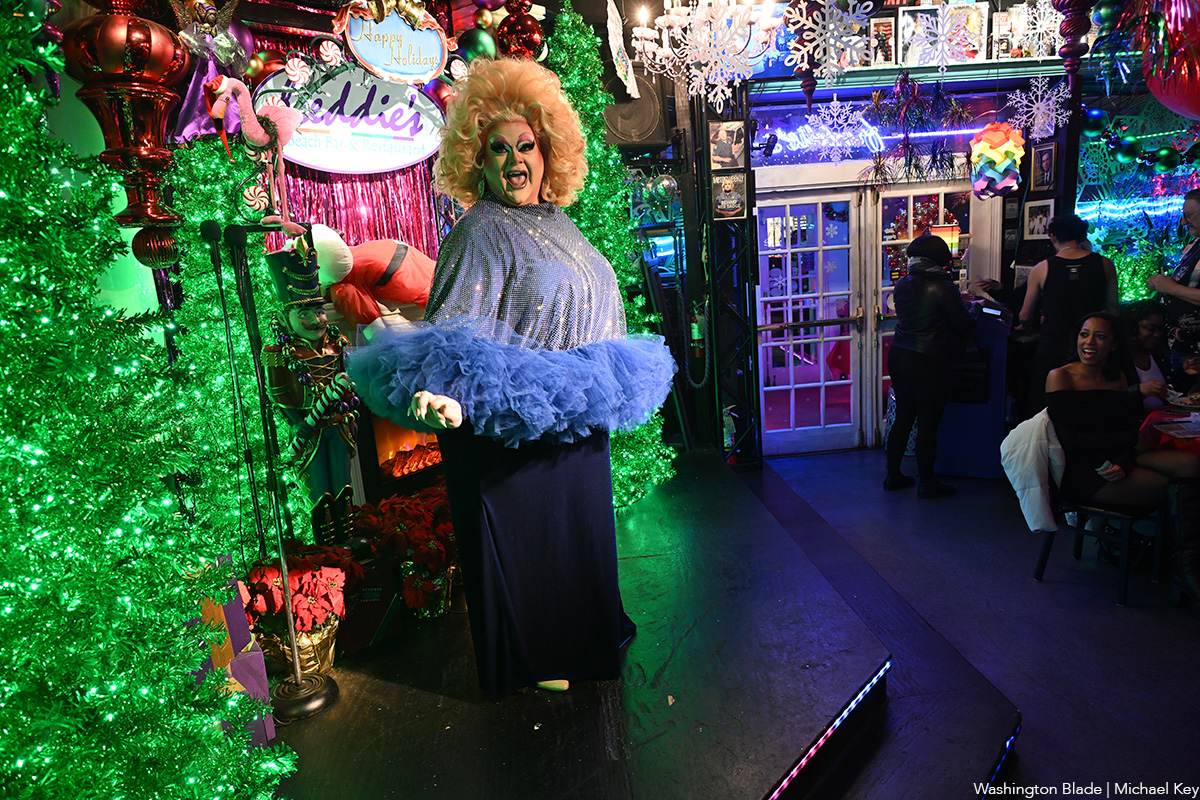
a&e features
Queer highlights of the 2026 Critics Choice Awards: Aunt Gladys, that ‘Heated Rivalry’ shoutout and more
Amy Madigan’s win in the supporting actress category puts her in serious contention to win the Oscar for ‘Weapons’
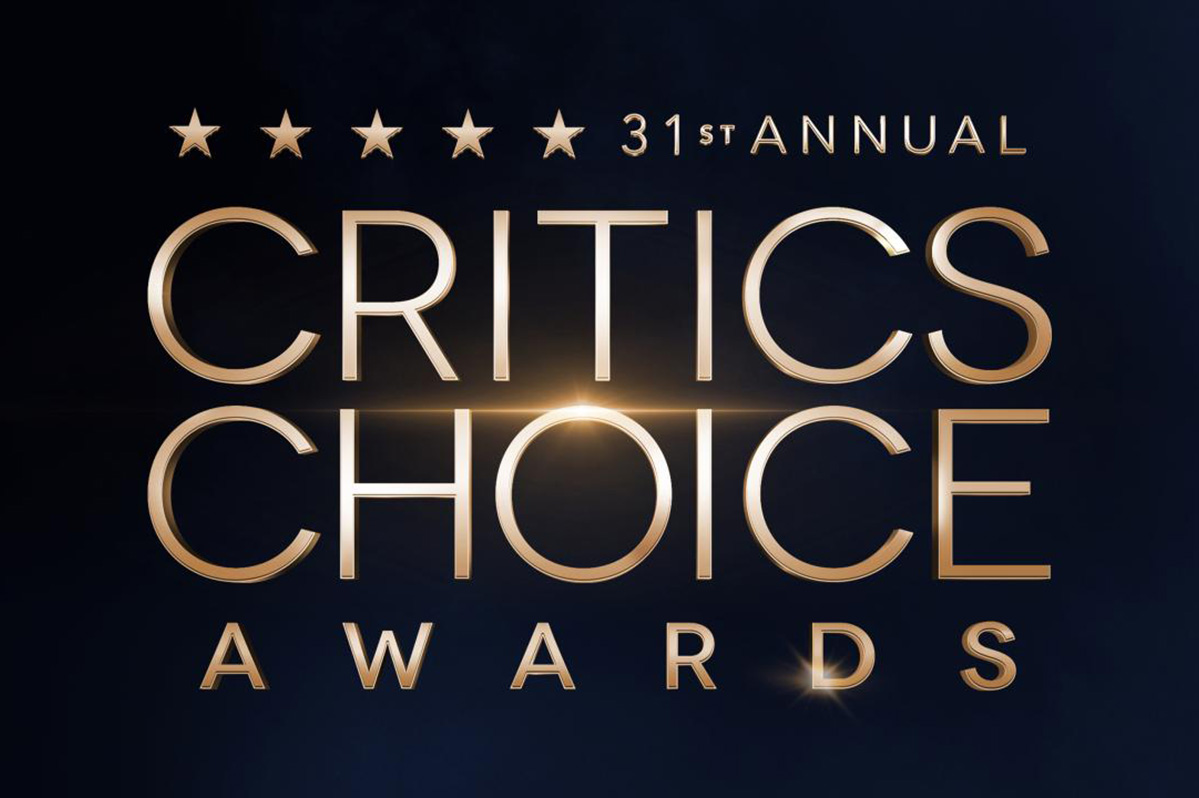
From Chelsea Handler shouting out Heated Rivalry in her opening monologue to Amy Madigan proving that horror performances can (and should) be taken seriously, the Critics Choice Awards provided plenty of iconic moments for queer movie fans to celebrate on the long road to Oscar night.
Handler kicked off the ceremony by recapping the biggest moments in pop culture last year, from Wicked: For Good to Sinners. She also made room to joke about the surprise hit TV sensation on everyone’s minds: “Shoutout to Heated Rivalry. Everyone loves it! Gay men love it, women love it, straight men who say they aren’t gay but work out at Equinox love it!”
The back-to-back wins for Jacob Elordi in Frankenstein and Amy Madigan in Weapons are notable, given the horror bias that awards voters typically have. Aunt Gladys instantly became a pop culture phenomenon within the LGBTQ+ community when Zach Cregger’s hit horror comedy released in August, but the thought that Madigan could be a serious awards contender for such a fun, out-there performance seemed improbable to most months ago. Now, considering the sheer amount of critics’ attention she’s received over the past month, there’s no denying she’s in the running for the Oscar.
“I really wasn’t expecting all of this because I thought people would like the movie, and I thought people would dig Gladys, but you love Gladys! I mean, it’s crazy,” Madigan said during her acceptance speech. “I get [sent] makeup tutorials and paintings. I even got one weird thing about how she’s a sex icon also, which I didn’t go too deep into that one.”
Over on the TV side, Rhea Seehorn won in the incredibly competitive best actress in a drama series category for her acclaimed performance as Carol in Pluribus, beating out the likes of Emmy winner Britt Lower for Severance, Carrie Coon for The White Lotus, and Bella Ramsey for The Last of Us. Pluribus, which was created by Breaking Bad’s showrunner Vince Gilligan, has been celebrated by audiences for its rich exploration of queer trauma and conversion therapy.
Jean Smart was Hack’s only win of the night, as Hannah Einbinder couldn’t repeat her Emmy victory in the supporting actress in a comedy series category against Janelle James, who nabbed a trophy for Abbott Elementary. Hacks lost the best comedy series award to The Studio, as it did at the Emmys in September. And in the limited series category, Erin Doherty repeated her Emmy success in supporting actress, joining in yet another Adolescence awards sweep.
As Oscar fans speculate on what these Critics Choice wins mean for future ceremonies, we have next week’s Golden Globes ceremony to look forward to on Jan. 11.
-

 Photos5 days ago
Photos5 days agoThe year in photos
-

 Sponsored3 days ago
Sponsored3 days agoSafer Ways to Pay for Online Performances and Queer Events
-

 District of Columbia3 days ago
District of Columbia3 days agoTwo pioneering gay journalists to speak at Thursday event
-

 a&e features3 days ago
a&e features3 days agoQueer highlights of the 2026 Critics Choice Awards: Aunt Gladys, that ‘Heated Rivalry’ shoutout and more


















